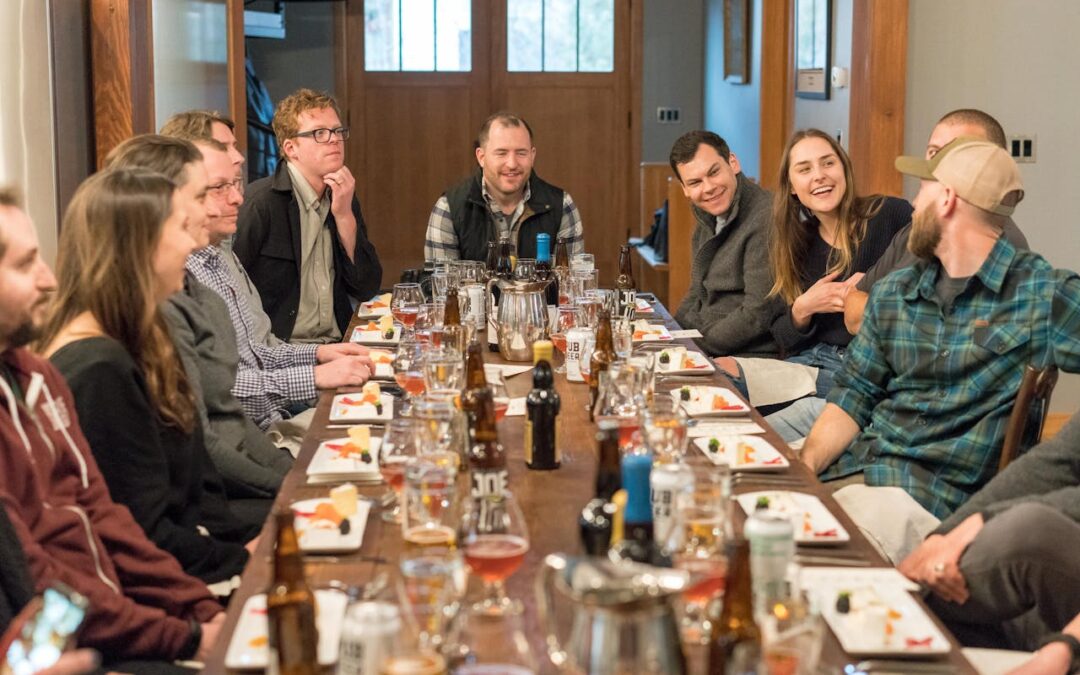
The Power of Purpose-Driven Community in Business
The Power of Purpose-Driven Community in Business
Business often starts with a product. But enduring companies are built around people. When leaders center their purpose not just on what they do, but who they serve, they unlock something far more valuable than growth. They build belonging.
In this episode of The Bliss Business Podcast, Shannon Wilburn, co-founder of Just Between Friends and now CEO of Shine Executive Coaching, shared how a mission rooted in community gave rise to one of the most trusted franchise systems in the consignment space. But Shannon’s real insight lies in what happened after the business took off — how she systematized purpose, scaled culture, and built emotional wealth along with financial results.
Community Is a Strategic Advantage
Shannon’s story begins not with a spreadsheet, but with a need. As a young mom, she wanted to make ends meet while helping others do the same. That early spark of empathy created a ripple effect. Families came together. Sellers supported buyers. Nonprofits joined the process. The company scaled, but the relationships scaled faster.
This wasn’t accidental. Shannon was building a community, not just a brand. And in today’s business landscape, community is no longer a nice-to-have. It is a moat. A Bain & Company study found that customers who feel emotionally connected to a brand are over 50 percent more valuable than those who are simply satisfied. Loyalty stems from shared values, not clever taglines.
Turning Core Values Into Operational Culture
One of Shannon’s lasting contributions at Just Between Friends was not just defining values, but making them actionable. The team didn’t let their purpose sit on a poster. They operationalized it.
Every all-hands meeting began with what Shannon calls a “culture moment,” highlighting real franchisees living out the values. A volunteer group called the Culture Club emerged to keep those values visible, especially during high-growth phases when dilution becomes a risk.
This kind of cultural scaffolding ensures that empathy does not get lost in the noise of expansion. It is how a company remains human at scale through rituals, reinforcement, and recognition.
Leading With Love Without Losing Performance
Some business leaders bristle at the idea of leading with love. They fear it will compromise results or confuse priorities. Shannon disagrees.
In fact, she argues the opposite is true. When people feel seen and valued, they perform better. Culture is not a soft concept. It is a leading indicator of business health. Companies with strong cultures see four times higher revenue growth, according to Forbes.
But this only works if it is real. Shannon’s coaching now focuses on helping founders articulate their North Star before they scale. This is not a brand exercise. It is a life alignment check. If your personal definition of success is murky, your company’s version will be too.
Key Takeaways
- Empathy-driven communities create durable brand loyalty
- Rituals like “culture moments” help scale values without losing clarity
- Purpose must be operationalized to survive growth
- Emotional connection with customers and teams drives measurable performance
- Love is not a weakness in business, it is a catalyst for trust, loyalty, and action
Final Thoughts
Shannon Wilburn proves that purpose is not just a differentiator. It is the core operating system of a human-centered business. Community cannot be faked. It must be built on trust, consistency, and shared ownership.
As more leaders search for sustainable growth in an uncertain world, Shannon’s journey offers a powerful reminder. Start with empathy. Systematize what matters. And lead with love not because it feels good, but because it works.
Check out our full conversation with Shannon Wilburn on The Bliss Business Podcast.
Originally Featured on The Bliss Business Podcast Blog










Recent Comments